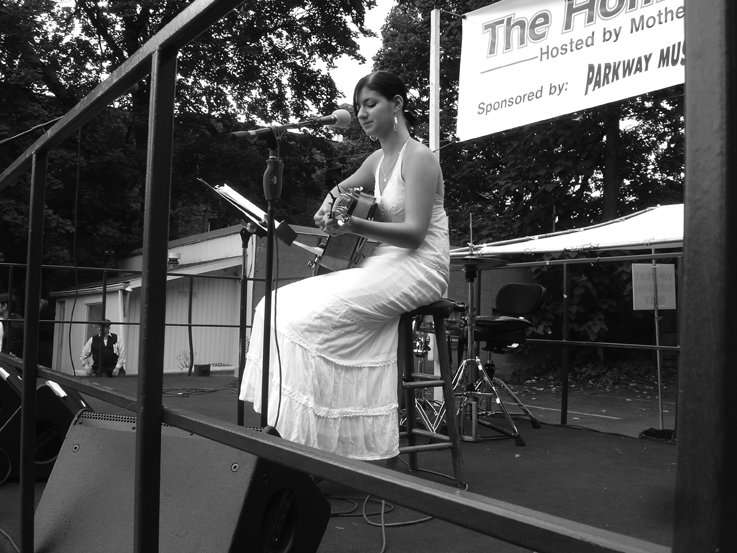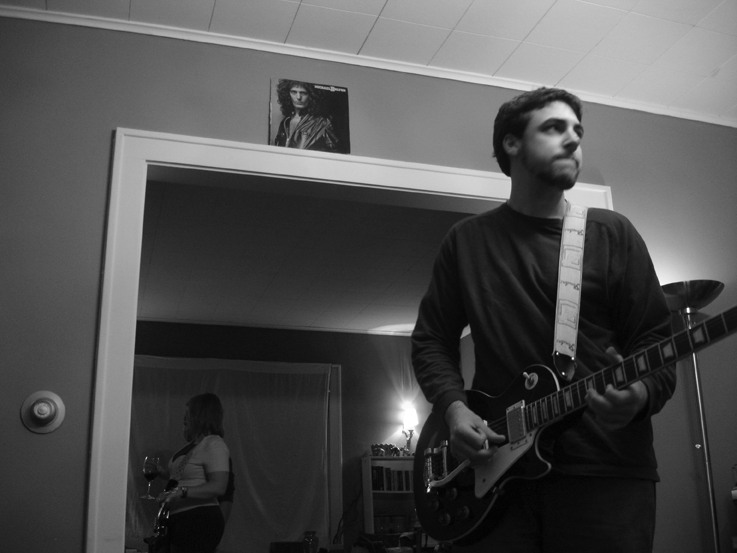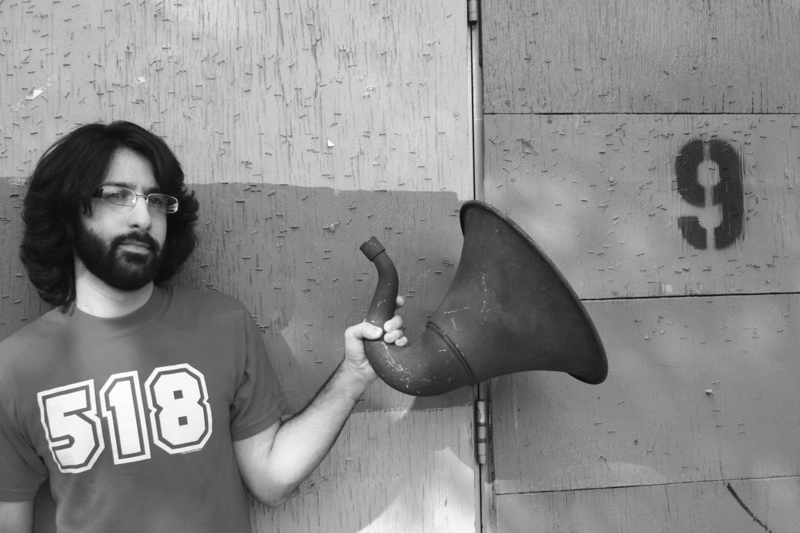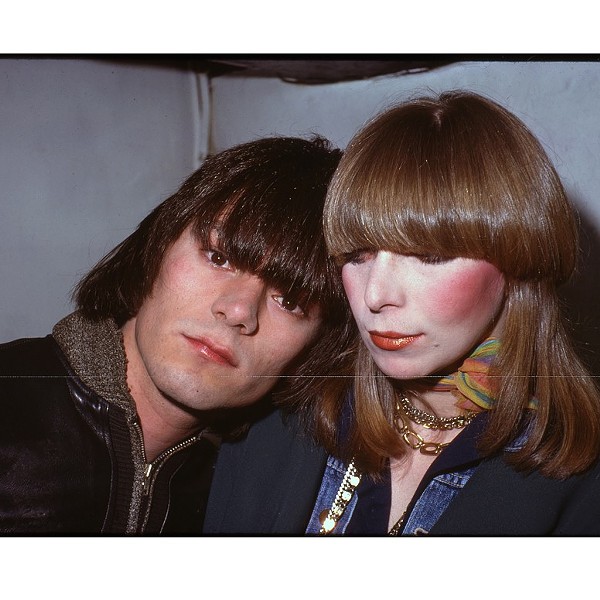And generally my generation / wouldn’t be caught dead working for the man / and generally I agree with them / trouble is you gotta have yourself an alternate plan.
–Ani DiFranco, “Not a Pretty Girl”
Like so many 20-somethings, Harith Abdullah bounced around a bit before settling on a profession. He wanted to be a writer and a journalist. For a while, he wanted to start a band. Then he thought of being a pop-culture critic. But instead of taking the role of armchair critic, sitting back and celebrating his own good taste (as so many of his generation seem to be doing), the 24-year-old Abdullah decided to get out and put his experience to use and start a record label. Rev Records has been in business for just under a year, and it’s produced two albums and has three more in the works.
Abdullah gets where he wants to go by refusing to look down. “It’s like that cartoon where the character walks off the cliff, but he doesn’t realize it until he looks down. That’s what we did, we walked off the cliff,” he says, “and I refuse—” Abdullah doesn’t even finish the sentence, as though saying it would be equivalent to the action.
According to Abdullah, it’s this obstinate single-mindedness that has made his whole enterprise work. Business can be learned, but passion can’t, and Abdullah brings a joy to the experience that seems to compensate for any other shortcomings the label may face, including financial ones. By his own admission, he and the musicians are all still kids, and there is time for them to grow up together.
There has always been music outside of Top 40, but during the 1990s, when advancing technology made it possible for individuals to produce, manufacture, and distribute their own work, the Indie—independent—music scene blossomed. The music that emerged has been characterized by a do-it-yourself ethos and a think-local mentality. During the past 20 years, cities across the country—Seattle, Portland (Oregon), Montreal, New York, to name a few—have given birth to new music scenes and accompanying labels. Abdullah says he is particularly inspired by the Saddle Creek label out of Omaha. Established in 1993, Saddle Creek is the home of the bands Bright Eyes, Cursive, and The Faint, who share a moody, pop-punk sound. Abdullah says the Saddle Creek founders all grew up together, and when they started the label, it was just a matter of deciding “whose name to put on the back of the tapes.”
Abdullah wants that same level of involvement with his musicians. “That was the idea that I pitched to everyone and what appealed to them—the idea of starting this community.” Ultimately, he says, he wants to help put Albany on the Indie-music map and prove that his city is just as vibrant as any of the others that have made it since the Indie explosion.
Abdullah, who describes his musicians as “brilliant,” is no less circumspect when characterizing his own acumen. Before launching Rev, he had some previous experience organizing shows, but none as a businessman; nevertheless, he proclaims, “I sort of inherently understand business,” an ability he says he discovered, rather than cultivated. He likens the situation to that adage about the man who never knew he could play the piano until he tried.
When Abdullah graduated from the University at Albany in 2000, he planned to go into journalism, but couldn’t find the right opening. Instead, like so many other English majors, he got a job at a bookstore, where he hosted an open mic night for two years. It was there he realized he enjoyed working with music and musicians. Many of his colleagues were incredibly talented players, but struggled with the business of making music. When he reached out to help friend Krysta Dennis record her January 2006 album Empty Pockets, he realized how satisfying such work was.
“After that,” he remembers, “I said I’m not going to do anything else with myself except run a record label.”
He officially established Rev Records—named for his cat, Reverend—in November 2006. Laura Boggs’s collection Whiskey and Springtime was the first album officially released by Rev Records that same month. In many ways, Boggs was a perfect choice for the label’s premier album. Well-liked in the music community, incredibly talented, and beautiful to boot, the 24-year-old elementary school librarian had played extensively, but hadn’t released an album in more than five years.
At first, she admits, she dismissed Abdullah, who approached her after hearing her play. When he told her he was starting a label, “I said, ‘Oohh, you and every other 20-something-year-old kid who likes to play,’” Boggs reports. But Abdullah was persistent, and kept talking about producing her next album. “When he gets it in his mind to do something, he just runs with it,” she reports.
Boggs, a singer-songwriter who had recorded one other album, knew firsthand how expensive and challenging the project would be. She decided to give it a shot anyway, and says she was amazed by the level of support Abdullah gave her. She invested about $300 initially, and Abdullah matched her investment. He located a place to record—another Rev Records artist had a basement studio—and helped her work out licensing for “I’ll Fly Away,” one of the songs on the album. For Boggs, packaging was important, and Rev Records solved this expensive issue by producing beautiful, silk-screened muslin cases for the hand-burned CDs. For the fledgling record executive, it was a hands-on operation that depended on the help of friends and family. In the hours before the CD release party at Tess’ Lark Tavern, Abdullah was burning the CDs individually on his computer, his mother and girlfriend were sewing the muslin, and friends were busy stuffing the finished records into their cases.
Nevertheless, by selling nearly the entire first run that night, Abdullah says Boggs and he made enough to recoup their expenses. The project and the experience couldn’t have been a better or more fitting expression of the label. “It was very much in the spirit of what we’re trying to do,” he says.
Nearly a year later, the little label is definitely making progress. With some of the profits raised during recent Rev Records events, and his own personal investment, Abdullah says he has been able to put more capital into successive projects.
Thomas McWatters, another singer-songwriter on the label, has known Abdullah since high school. When Abdullah approached him about joining the label and producing an album, McWatters, 28, was straightforward with him. “I said, ‘If you want me to put out a record on your label, then you need to pay for it. Because if I’m going to pay for it, I’m just going to release it on my own label.’ ” Abdullah agreed.
McWatters, an electrician by trade, had self-recorded one previous album when he was 19, “just sort of a notch on the wall, you know, to see what I could do.” The upcoming album with Rev is being recorded at the professional Cotton Hill Studio in Colonie, and McWatters is hopeful about its potential. A good CD is “the job interview in this business,” McWatters said. “Somebody just has to hear it and like it.”
Howard Glassman, owner of Valentine’s, an Albany music venue, says being a musician in Albany is difficult. The main challenge? “Getting people other than friends to come see you,” Glassman says. “People really don’t do that anymore. They really have to have their hands held. Thank you, MTV.”
Abdullah has helped create opportunities for artists to play and sell their wares, booking monthly Rev Records Revealed showcases at the Lark Tavern and the Capital District Federation of Ideas art space on Albany’s Madison Avenue. He’s no slouch when it comes to marketing and promotion, either, making use of MySpace and CD-Baby on the Internet to promote artists and show and sell CDs. He’s also reserved a Rev Records domain name, and has T-shirts and buttons ready, in anticipation of the label’s own eventual website launch.
For all the work Abdullah is putting into making and promoting albums, arrangements for profit-sharing remain informal. Abdullah’s royalty rate varies by project. Up until this point he hasn’t used contracts, preferring to keep arrangements friendly. As business grows, however, that is changing, and he’s currently in the process of creating a contract for future use. He said his artists have a great deal of input in pricing, and that he’s willing to work with them to defray costs and keep prices low—even though it means less money for him.
For now, Abdullah is signing artists from his circle of friends. He acknowledges that he doesn’t have the resources to sign other talent, since not every musician is willing to help out in the way his friends have. That admitted, the end goal is to eventually run Rev as a profitable, full-time business, and allow all his musicians to quit their day jobs. Asked how, Abdullah readily admits, “I’m not sure I know.” Returning to the metaphor of the cliff, he explains that he and his friends don’t just cross a bridge when they come to it: Presented with a chasm, they construct the bridge.
So far, they’ve shown themselves to be adroit builders—begging, borrowing, and even sewing to get an album produced.
Until Abdullah can live off the label, he’ll continue putting food on the table by working at an IT job with the New York State Energy Research and Development Authority. “Ultimately, when we all grow up, I’d like to sit at home and do nothing but make CDs,” Abdullah says. “I’d like to be able to feed myself so I can make records.” In the meantime, Rev Records will feed him creatively, and offer new fare for the local music scene.




















